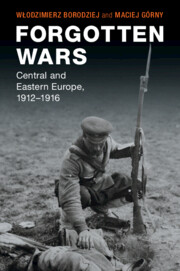Part II - The Rear
Published online by Cambridge University Press: 15 March 2021
Summary
This part deals with psychological and social transformations, changes in employment and organization of production (including a sharp increase in the number of women employed and the significance of farming), inspections, and rationing; the narrative often descends to the level of everyday life on the front. Alongside economic deterioration and maintenance, significant attention is given to atmospheres (especially in cities that were particularly afflicted by crisis) and ethnicization, which foreshadowed in 1916 the difficult times ahead for multinational empires. After a section about information scarcity and propaganda, the narrative concentrates on the issue of the allegiance of stateless nations. Despite the full acceptance of the emperors in the summer of 1914, leaders soon began to treat these nations with growing distrust, which found expression in the vocal repression of such ethnic groups as Baltic Germans, Serbians, Ukrainians and – above all – Jews. The book argues that it was precisely these repressive politics which, like a self-fulfilling prophecy, hastened the collapse of the empires.
Keywords
- Type
- Chapter
- Information
- Forgotten WarsCentral and Eastern Europe, 1912–1916, pp. 159 - 242Publisher: Cambridge University PressPrint publication year: 2021

